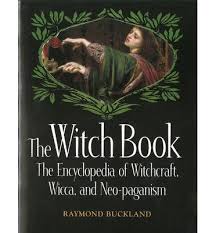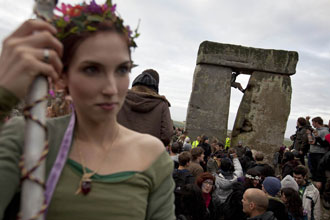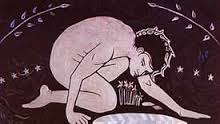3. A Comparison of World Views (ii)

Lesson Objectives
Last week we looked at Islam and secular humanism, against the background of Christian belief.
Some world views do not "compete" as such. Many do not actively proselytise either. These include Buddhism, Hinduism, Shintoism, Judaism, Sikhism, Daoism. It is not possible to convert to Jainism or Parsiism (Zoroastrianism, originally from Persia). Baha'is seek to make converts, but not in a competitive form as their beliefs are universalist. Some religions have militant expressions, eg Hinduism (BJP, cf murder of Australian missionary Graham Staines in 1999), Buddhism (Sri Lanka) and nationalistic/militaristic Shintoism (Japan).
This week, we will consider three further, very different, world views in the public square:
- Marxism/Communism
- Neo-Paganism/New Age
- Individualism.
| World View |
Marxism |
Neo-Paganism, New Age |
Individualism |
|---|
| Source/s |
Writings of Engels, Marx and Lenin.
Communist Manifesto |
Various mediaeval and modern sources |
Self - fed by most modern media, social media |
|---|
Theology
What about God? |
Atheism |
Pantheism |
"Self-made man who worships his creator" |
|---|
Philosophy
What is real, meaningful? |
Dialectical Materialism |
Non-naturalism; spiritual world |
Fulfilment."You will be as God." now |
|---|
Ethics
What's right? |
Majority by the proletariat |
Relativism |
Situational ethics, relativism |
|---|
Biology
What about Life |
Evolution |
Evolution |
Naturalism |
|---|
Psychology
What about Human Nature |
Behaviourism |
Collective consciousness, god-consciousness |
Monism. Self-actualisation |
|---|
Law
Who makes the rules? |
Positive law (in reality: dictatorship) |
Non-traditional home, state, personal decisions |
"Don't tell me what to do" but protect my right to be what I want to be and say what I wish" |
|---|
Politics
Who is in charge? |
New World Order, world domination, Communism |
New Age Order |
The individual. Do not trust leaders. |
|---|
Economics
What about resources? |
Communism. From each according to his ability, to each according to his need. |
Universally enlightened production |
What's in it for me? Make as much as you can. Minimise taxes. Selfishness is laudable. |
|---|
History
Interpreting the past and the current state of the world for clues as to the future |
Historical materialism |
Evolutionary, achievement of godhood |
History is "now". |
|---|
Marxism
Atheistic communism is a political and economic system that became one of the most powerful forces in the world. It shaped much of human history from 1900 to the 1990s. Hundreds of millions are still under its shadow. Communism comes from the Latin "communis", which means "common", or "belonging to all". Today it can mean:
- a form of government
- an economic system
- a revolutionary movement
- a way of life
- a goal or ideal
- a set of ideas about how history operates

"We are ragged and we are poor but we are changing the world."
The faith of communism is based on a material world view and the fulfilment of a hope for a world revolution and a society worth dying (or eliminating others) for.
Karl Marx (1818-1883) was a German social philosopher in the 1800s. Lenin was a Russian revolutionary leader in the early 1990s. Marx's original ideas were first expressed in the Communist Manifesto (1848), a pamphlet he wrote with Friedrich Engels, a German economist. Marx believed that the only way to ensure the creation of a happy, harmonious society was to put the workers in control. He assumed the ruling class would never willingly give up power, so struggle and violence were inevitable.
The terms "communism" and "socialism" are often confused (sometimes by opponents, for political reasons). Communists often refer to their ideas as "socialist", but not the other way round. Both seek public ownership or regulation of the principal means of production, but most socialists prefer to achieve this by peaceful means.
God: Atheism. Marx was an atheist before he became a communist. Engels and Lenin agreed that religion was a drug, or "spiritual booze", and must be combatted. Practicing atheism would mean "a forcible overthrow of all existing conditions", including the economy, government, law. Communist parties have generally not deviated from Marx's attitudes toward God or religion, which explains the persecution (or attempted control) of the church in communist dominated countries.
Philosophy: Dialectical materialism. Materialism says that "all that exists and is important is matter" (the Bible says that visible things are temporary). The dialectic teaches that there is always a "thesis (the way things are), and an antithesis (opposition to the way things are), leading to a struggle, resulting in a "synthesis", leading to a new thesis, etc. For Marxists dialectical materialism is the driving process that moved matter from inorganic state to life, then to animals, humans and finally organised social institutions such as governments & nations.
Ethics: Majority by the proletariat. Marxist ethics do not come from absolutes. Whatever advances the proletariat (working class) is considered good. Whatever hinders its advance in social and human evolution is considered evil. The killing fields of communist countries and warfare in the 20th century were the practical results of this "class morality". Lenin is quoted as saying, "It does not matter if three quarters of the world is killed, so long as the remaining quarter is communist".
Biology: Marxism depends on theories of evolution and spontaneous generation. Marx made it clear that Darwin's Origin of the Species contained the scientific basis for his views on class struggle. However Dialectical Materialism needs a theory with clashes and leaps, not a gradual process like natural selection. Marxists believe in "punctuated equilibrium", in which each species remained stable for a long period (equilibrium) and evolution happened suddenly through ruptures (punctuations) that led to leaps from one species to the next.
Psychology: Behaviourism. Marxism teaches that everything a person does is the result of their make-up and the influence of environment (education, surroundings, family, background, etc.) on their nervous and other systems. If the brain is a collection of nerves, blood vessels and tissues that have been programmed to react in certain ways; and, like Pavlov and his dogs, humans are conditioned to feel patriotic when they see a flag, etc., the job of communism is to change conditions and the way people see life.
Law: Dictatorship of the Proletariat. Marxists believe that the law was devised by the propertied class (the "bourgeoisie") to protect personal or state property. In Marxism, sovereignty is to be given to the proletariat. Communist law grants some rights but only to assist the advancement of communism. Law (and state) will eventually become unnecessary when the full communist state is victorious and the proletariat will experience its communist paradise.
Politics: A new world order. Eventually the world proletariat will rise up, throw off the chains of bourgeois repression and seize the means of production, distribution and exchange (and with them political power), thereby establishing a worldwide "dictatorship of the proletariat". This is the next major step in the evolutionary path toward the coming world order.
Marxists call for a one-world dictatorship of the proletariat because they will control such a government through Marxist/Leninist law. The Marxist believes that once all traces of bourgeois ideology and capitalistic tradition have been eradicated a fully communist society will exist. In such a society, government will become unnecessary and will wither away.
Economics: Communism. Economics is central to Marxism. The economic system of society determines the nature of legal, social and political institutions. Marxists believe that anything wrong with society is the result of imperfect modes of production. History has revealed an ordered progress. Societies have been improving because the economic systems on which they have been founded are gradually improving: primate society (things held in common) > slavery > feudalism > capitalism. Flawed capitalism will eventually give way to communism. Private property will be abolished; man will no longer oppress his fellow-man in an effort to protect his property. When all private property and class distinctions have withered away, the transition from socialism to communism (the highest economic form) will be complete and each individual will see his or her needs fulfilled.
History: Historical materialism and determinism. History for the Marxist is the result of the dialectics at work through biological evolution, economic and social order. History is a progression of biological and economic evolution that will ultimately result in a society of communist people in a communist paradise.
Marxism is constantly being revised and there are many forms.

The existence of the church is an obstacle to the achievement of a communist world. Marxism regards economics as the locus of the problem, the "stifling" family unit, the "delusion" of religion and flawed capitalist systems are "evils" that have to be abolished. What is important is class struggle > revolution > a classless society and the abolition of private property.
Many Marxists do not really understand what Marxism is all about. Nor do most Marxists or communists understand that their faith system contains both the logic of its own destruction and the capacity to destroy nations. (The world came within a whisker of a nuclear war over the Cuban missile crisis in 1962.)

How does a Christian world view see Marxism?
Christians believe that:
- men and women know intuitively (because God has made us so) that life has to have meaning beyond the material realm
- Christ was concerned with this world - Christians do not attempt to escape the secular realm (cf monasteries, hermits, orders)
- Christians believe we are "in the world but not of it"
- while working and being good stewards of what we have, and caring for the poor and downcast, we are exhorted by Christ to lay up treasures in heaven
- history is not just about economics; the human search for meaning finds its fulfilment in a relationship with the eternal and present God, revealed as the God-man Jesus Christ
- social problems are human problems that need a spiritual response; before a new social order is possible people need a new birth; social reform alone, imposed from without by command, cannot change hearts
- reaching people in need and redeeming them from exploitation and oppression are part of the Christian message and the effects of Christians being "salt" and "light"
- the Bible acknowledges that suffering and injustice are rampant throughout the world; as in the Biblical messages (Isaiah, Amos, John the Baptist, James), Christians can and should speak out about issues facing men and women today, eg racism, injustice, denial of human rights, inequality, greed, poverty, economic marginalisation, hunger, disease, the arms race, the nuclear threat, exploitation of workers, unfair industrial relations, child labour, degradation of the environment
- Christians reject the false teaching of "Liberation Theology"
The Affirmative Christian Example
- live out of the strength of a personal relationship with (and surrender to) Jesus Christ
- live as though the Kingdom of God is a reality NOW
- give unselfish, unconditional 1 Corinthians 13 love, like the Good Samaritan
- BE the church, proclaiming in doctrine and life the fullness of the Gospel, not the empty formal shell that Marx saw in England when he studied there prior to the formulation of his ideas
- never forget that communists/Marxists/Maoists are human beings loved by God
- remember that we are in a spiritual conflict, not an ideological one
- bear the burdens of others - this is the law of Christ (Galatians 6:2)
- set examples of hard work, incentive, use of God-give talents for the good of others
New Age Movements
Emerged as an alternative religious form in the Hippie Movement in the USA in the 1960s-70s. Millions of young people rebelled against the Vietnam War, racial inequalities, political corruption, liberal theology, and turned to Eastern religion, drugs, sexual freedoms. The New Age Movement (in its various forms) is constantly changing. Many New Agers blend Western thought , scientific developments and rationalism with Eastern spirituality, focus on self-consciousness, aspirations to godhood (sound familiar? cf Genesis 3) and evolutionary change. Believe that Jesus achieved God-consciousness, including from gurus in Tibet and other parts of the east. Seek enlightenment, transcendence, freedom from materialism and man-made laws that restrict free expression. Embrace relativism: if it feels good, it must be right, do it. We are all spiritual beings, part of one God, on a journey back to the higher life. This is very esoteric.

New Agers reject soulless materialism and the competitiveness and isolation that feed it. Friendship is very important; community is all-embracing, cf Hare Krishna. New Agers are on a quest to find themselves. They have no boundaries, but respond to strong leaders, cf Sun Myung Moon. Also open to new spiritual expression, the occult, witchcraft, paganism, and cabalism.
Religion is not dead. In the west is continues to emerge in new forms, including alternative forms: Earth Mother, Druids, spirit guides, cosmic consciousness, holistic healing, spiritual interpretations of ecological challenges. The revival in religious interest is largely a response to the sterility of modernity. Eastern mysticism (eg Monism =all is one) is popular. Moonies, Sri Chinmoy, Dianetics (Scientology), yoga, meditation, focussing, channelling, visualising, guided imagery, mind merging, gurus, Eckankar, astrology. All are gaining respectability.
Dianetics claims to be, "the analysis, control and development of human thought". Scientology teaches that there are gods above all gods and gods beyond the gods of the universe".
Shamanism is based on the belief that gods, spirits, demons, influence all of human life, but can be influenced by shamans or witchdoctors.
Marks of Neo-Paganism:
- rejection of orthodox religion (including Christianity), while many parallel terms and concepts
- underlying belief that Go and nature are one- pantheism; emphasis on protection of the environment, world peace, vegetarianism
- polytheism - draws everything into itself; quest for One World religion; the "community" is everything; the individual is simply part of nether whole.
- acceptance of divination (eg crystals, rocks), even by people regarded as highly educated and sophisticated by their peers
- superstition and cultic practices - attempts to control, the world by magic, scientific fiction (virtual) communities)
- mind control, group consciousness
- belief in astrology
- exaggeration of immanence of "vital life forces", subjective, appeals to individuality and personal experiences
- salvation possible by good works, self-realisation
- lack spiritual bearings

Some pagan or New Age views:
| God | An impersonal energy force, immanent in all things. He/she, mother or father, god or goddess. Sun, moon, stars, all of nature, can be worshipped as God.
God is in all of us; we are part of divinity. |
| Christ | A reincarnated "avatar" (a deity manifest in human form), messiah or messenger who had special insight. The physical man Jesus was separate from Christ, a title he did not monopolize, cf Buddha, Mohammed, Confucius were also Christ, enlightened Masters. Jesus spent years travelling, studying and teaching in the mystic East, including Tibet.
Some believe that Jesus was a member of an Essene brotherhood.
The fact that He died on the cross is of little significance.
"Christ is the impersonal divinity within all people that we can dip into."
|
| Angels | Ascended masters, masters of wisdom, ancient masters, spirit guides, spirit counsellors, super beings. |
| Rebirth, Conversion | Personal or planetary transformation and healing. The point at which a believer "lets go" and allows their higher self to take over and guide their life.
Higher consciousness, greater spiritual awareness and wisdom, "Christ-consciousness". |
| Second Coming | Christ-consciousness, spiritual transformation, often into a divine being. |
Many are attracted to New Age practical approaches to issues, eg meditation to relieve stress, health products, and retreats.
Modern people often want to mix and match religious systems and experiences. There is a widespread belief that religious "norms" only serve to construct, limit and oppress free society. "All is one" has strong appeal in a disconnected world. Personal meaning can come from the belief that, "all is one, all is interconnected. God and nature are one. I am therefore part of God".
People are also attracted to systems that offer love, acceptance, identity and significance, in which they can find meaning and purpose, with relationship, without necessarily demanding personal accountability.

Engaging Followers of New Age
- try to understand why people get involved, eg many are searching for self-realization
- try to understand their world
- be respectful and real
- be aware that New Age is a spiritual power system
- look for ways to explain (and model) that lasting personal transformation and spirituality can only come via a dynamic relationship with God through Jesus Christ; everything else may be real, but not genuine.
"Man is incurably religious" (Jung).
Individualism
"Mirror, mirror on the wall, who is the fairest of them all?

"What's in it for me?"
"And now I see the face of god, and I raise this god over the earth, this god whom men have sought since men came into being, this god who will grant them joy and peace and pride. This god, this one word: 'I." (Ayn Rand).
Individualism does not usually appear in texts about great faith systems, but it IS a dominant heart orientation, a compelling and universal world view. It focuses on ... the individual. ME!! Thinking, acting, making choices for self alone, for reasons of self-interest.
 Remember the Greek myth of Narcissus
Remember the Greek myth of Narcissus
If "collectivism" is a world view that describes people in relation to one another, to a group, or society, extended family, or ethne, and if Communism is an effort to enforce collectivism from the top, for "the masses" (where the individual only counts except as part of a greater whole) "individualism" focuses on a person's ability to think alone, without reference to others, or only insofar as others meet the individual's needs and aspirations. In such a context, looking out for the interests of others counted as a potential obstacle to happiness.
Individualism stresses prioritisation of personal worth, goals, happiness, achievements (cf Australian Idol), and the pursuit of individual interests, for personal gain. The origin of the words "self-ishness", or self-centredness. From the Renaissance "man" and "human experience" took the place of God in art and literature, coincided with re-emphasis on the classics instead of Christianity ("If anyone wants to be great, let him be your servant", "bear one another's burdens" were foundational in Christianity).
Individualism seeks "personal satisfaction" and "fulfilment" as end goals. Ties between individuals are loose. Living for "now".
Libertarianism: "don't tell me what to do", "I make my own rules". Anti-authoritarianism stems from individualism.
Freethinking: sounds good, but denotes those who refuse to submit to the thinking or teaching of others. This logically leads to anarchism or nihilism.
Subjectivism: it is only real if I feel/perceive it to be so.
Some people in the Western Evangelical church have adopted this approach:
- I am unique
- God's personal plan and destiny for me,
- religion is a private matter between an individual (me) and God
- I worship God in my own home
cf God so loved the world
If we are to understand how world views work we must be careful not to be seduced by the "me-too-ism" endemic in the West. The clear teaching of the New testament is that Christians belong to a "body", a "family", a Christian "community", an
ekklesia made up of all of the "called out ones", where all are complementary, none is meant to stand alone. See Ephesians 1:3, 11; 2:6-7).
For a counter to the cult of individualism, consider the example of Jesus in Philippians 2:5-8.









 Remember the Greek myth of Narcissus
Remember the Greek myth of Narcissus